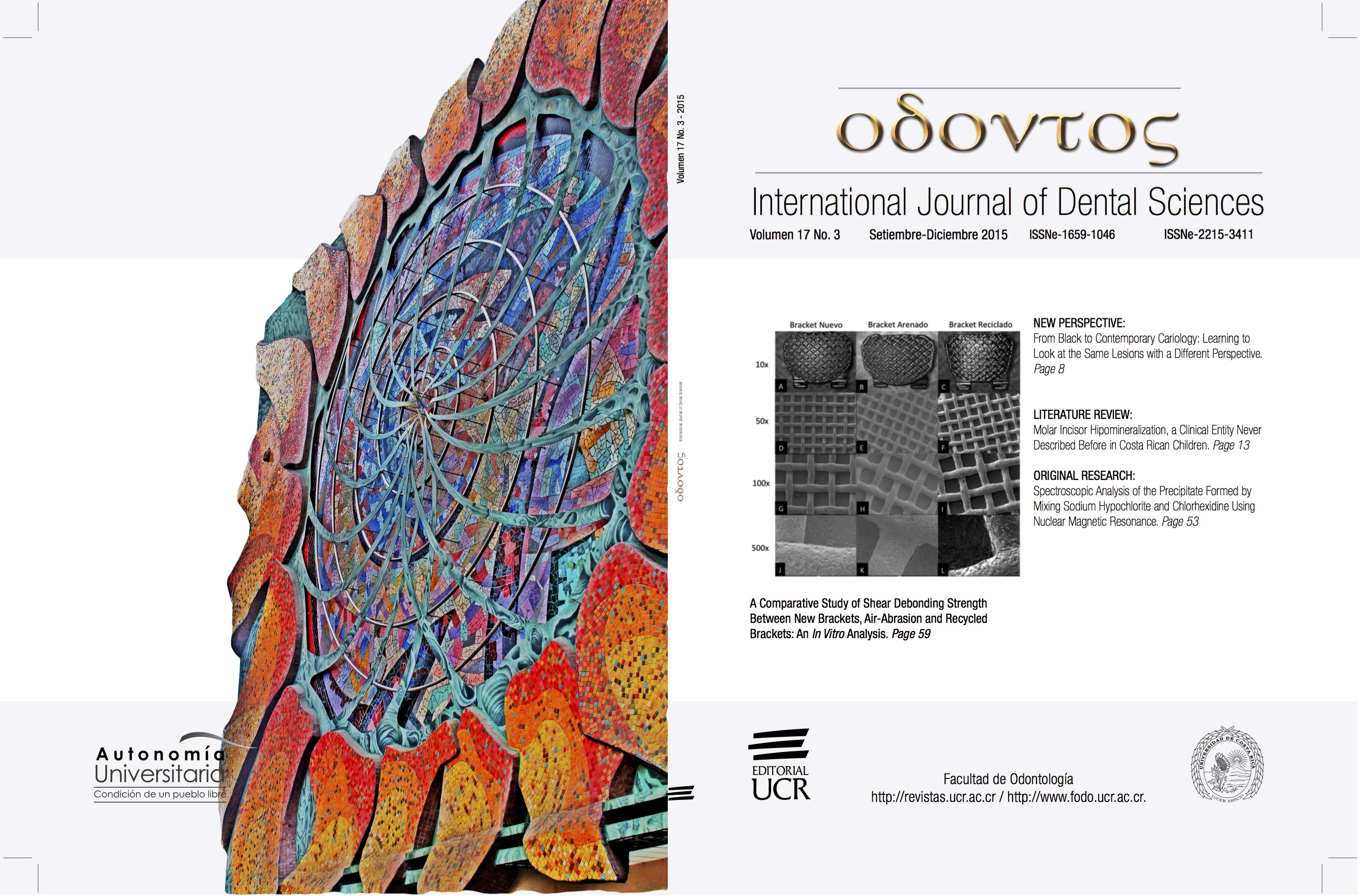Resumen
La encuesta es un elemento básico de recopilación de datos en salud. La validez del cuestionarioes esencial para lograr pruebas útiles, siendo un aspecto crucial en la identificación y la corrección de fuentes de sesgos en los mismos. Las pruebas verbales se han reconocido como herramienta para evaluar si las preguntas causan o tienen algún problema, tanto para el entrevistador como para el entrevistado. El objetivo de este estudio fue validar el formulario OHIP-49 y OHIP-19 en una población de costarricenses mediante la aplicación de pruebas cognitivas para cuestionarios como la prueba verbal y posteriormente un pretest estándar. En una muestra de 15 individuos rehabilitados con prótesis removibles se aplicó un cuestionario de 42 preguntas con pruebas cognitivas de manera personal y a 10 individuos se les aplicó un pretest estándar por vía telefónica. Con las pruebas se validó el instrumento, se conoció el tiempo necesario para aplicar el instrumento vía telefónica y a seleccionar una muestra estadísticamente significativa.Citas
World Health Organization. Oral health surveys: basic methods. s.l. : World Health Organization, 2013. ISBN: 978 92 4 154864 9.
Choi B, Granero R, Pak A. Catálogo de sesgos o errores en cuestionarios sobre salud. Rev Costarric Salud Pública. 2010; 19(2): 106-118.
Haeger H, Lambert A, Kinzie J, Gieser J. Using cognitive interviews to improve instruments. Annual Forum of the Assiciation for Institutional Research. 2012, pp. 1-15.
Presser S, Couper M, Lessler J, Martin E, Martin J, Rothgeb J, Singer E. Public Opin Q. 2004; 68(1): 109-130.
Schwarz, N. Cognitive aspects of survey methodology. Appl Cognit Psychol. 2007; 21(2): 277-287.
Castillo M, Padilla J, Gómez J. Utilidad de los métodos de pretest para la evaluación de los cuestionarios en la investigación mediante encuesta (Tesis Doctoral). Granada, España: Universidad de Granada, 2009.
Willis GB, Royston P, Bercini D. The use of verbal report methods inthe development and testing of survey questionnaires. Appl Cognit Psychol. 1991; 5(3): 251-267.
Willis, G. Cognitive Interviewing: A Tool for Improving Questionnaire Design. EUA: SAGE Publications, Inc, 2005.
Smith V, Molina M. La entrevista cognitiva: Guía para su aplicación en la evaluación y mejoramiento de instrumentos de papel y lápiz. Cuaderno Metodológico 5. s.l. : Instituto de Investigaciones Psicológicas, Universidad de Costa Rica, 2011. pp. 48-77. 1659-2921.
Slade, GD. Assessing change in quality of life using the Oral Health Impact Profile. Community Dent Oral Epidemiol. 1998; 26(1): 52-61.
Allen F, Locker D. A modified short version of the oral health impact profile for assessing health-related quality of life in edentulous adults. Int J Prosthodont. 2002; 15(5): 446-50.

